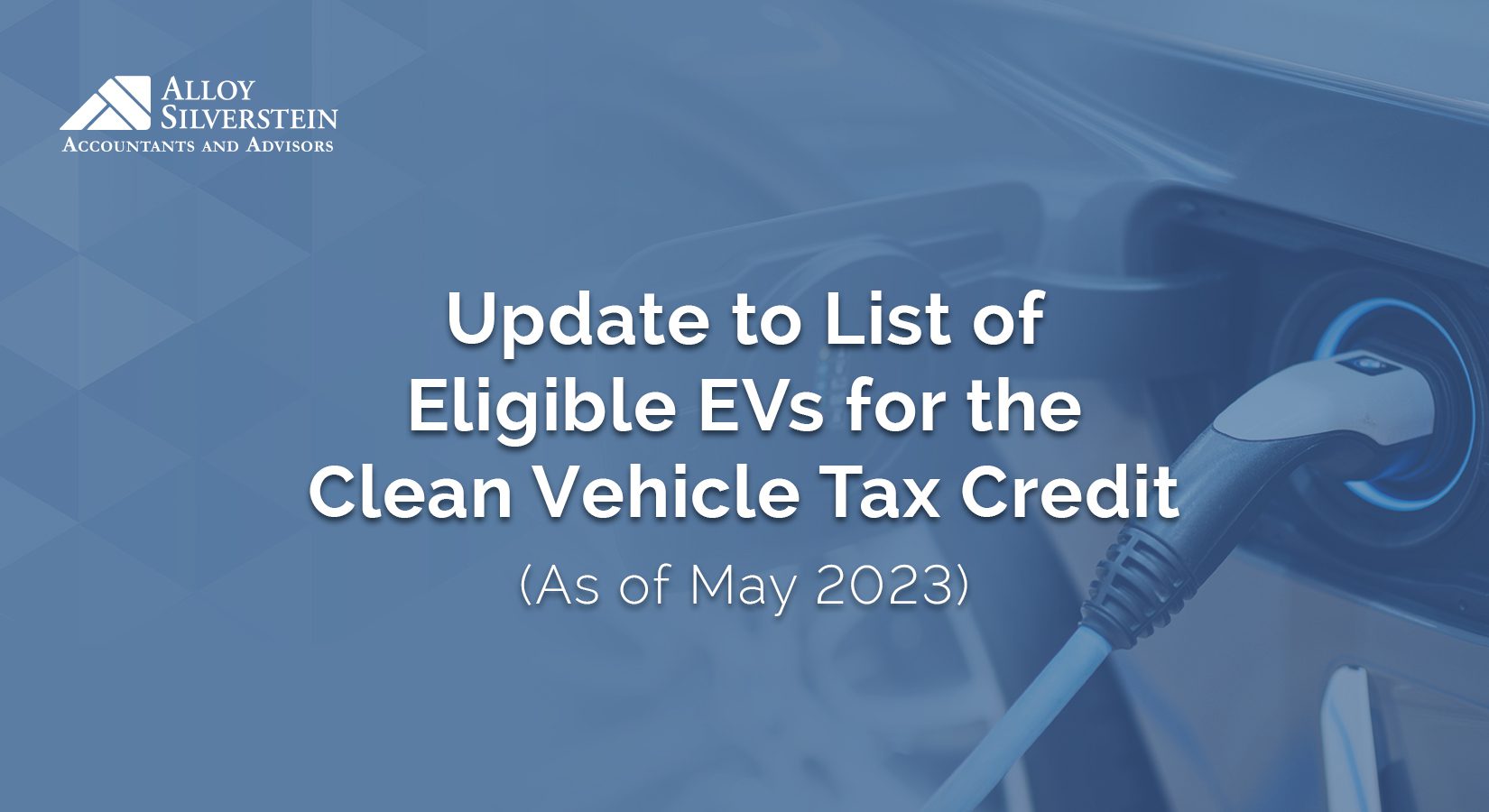
Last year, the Inflation Reduction Act of 2022 introduced new requirements and limitations for taxpayers who want to receive a tax credit for purchasing a new clean or Electric Vehicle (EV) in 2023.
Before you head to the dealer, know that new battery sourcing requirements went into effect on April 18, 2023 and it disqualified a number of foreign makes and models that were previously eligible for the federal tax credits. For new EVs purchased after April 2023, the full $7,500 federal credit is broken into two key components: $3,750 for critical minerals and $3,750 for battery components.
The U.S. Treasury lists* the following electric and hybrid vehicles that still maintain eligibility for the Clean Vehicle Tax Credit as a new purchase.
Up-to-date eligibility on specific makes and models can be found at fueleconomy.gov.
The nonrefundable credit is available to individuals and their businesses. The MSRP for eligible new EVs cannot exceed $80,000 for SUVs, trucks, and vans, or $55,000 for cars and other vehicle types. Beginning January 1, 2024, taxpayers will have the option to apply the credit at the point-of-sale or claim the credit on their income tax return.
When the 2023 credit was first announced, certain manufacturing quotas were eliminated as a restriction, which made more makes and models eligible. While that lasted for a couple of months, stricter requirements on the internal components of the vehicles began to phase in to promote U.S. manufacturing and jobs.
As of April 18, 40% of battery minerals must come from North America, from a country with a U.S. free trade agreement, or recycled in North America. Over the next four years, this 40% will gradually increase to 80%. In addition, currently 50% of the battery components must be made or assembled in North America, which is also set to gradually increase to 100%.
Popular brands that are no longer eligible include Audi, BMW, Genesis, Hyundai, Nissan, and Volvo. Volkswagen and Rivian were initially on this list, but have since submitted updated paperwork that verified their qualifications. Since the tax credit is a strong incentive for many when making an EV purchase, more car manufacturers plan to open plants in North America and the U.S. in order to meet these stricter requirements and regain eligibility status.
| Eligibility Income Threshold | |
| New car AGI limit | Used car AGI limit |
| $150,000 for single filers | $75,000 for single filers |
| $225,000 for HOH | $112,500 for HOH |
| $300,000 if married | $150,000 if married |
The Inflation Reduction Credit also introduced a Previously-Owned Clean Vehicle (POCV) Tax Credit of up to $4,000 (30% of purchase of price) for individual taxpayers. Eligibility requirements include:
If you meet the income requirements and are interested in taking advantage of the available federal tax credits to purchase a new or used EV, have a tax planning meeting with your accountant and advisor to discuss your tax strategy options.
*Current as of publication date of May 9, 2023. Head to fueleconomy.gov for the most current information.
Empowering business owners and individuals in South Jersey and Philadelphia to feel confident through proactive accounting and advisory solutions.